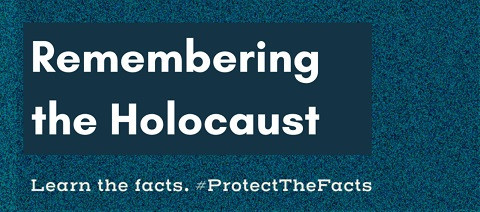
GCED Basic Search Form
Quick Search
You are here
News

Empowering people to reflect on the root causes and repercussions of hate crimes is essential
Ron Malka, Walter J. Lindner & Eric Falt
To read the published version in the Hindu, click here
Every year on January 27, the United Nations honours the victims of the Holocaust by reaffirming its unwavering commitment to counter anti-Semitism, racism, and other forms of intolerance. The date marks the anniversary of the liberation of the Nazi Concentration and Extermination Camp of Auschwitz-Birkenau by Soviet troops in 1945 and calls for a sombre reflection on the real dangers of extreme forms of hatred.
“All of us, dying here amidst the icy, arctic indifference of the nations, are forgotten by the world and by life.” This poignant statement by a camp inmate engraved on the walls of Yad Vashem should make us all sit up and take note that this is not just a forgotten sentiment in the pages of history books. This is a palpable feeling even today. Time and again, we have seen how hate speech can prompt ordinary people to feed into prejudices and hostilities. Has the eternal promise to “never forget” already been forgotten?
Hate speech has intensified
Currently, the anonymity of the Internet and increased screen time during the pandemic have intensified hate speech. Greater exposure to hateful discourses online has allowed anti-Semitism and other variants of racism to fester in our societies. According to researchers at Tel Aviv University, the feelings of uncertainty, alienation and dejection brought on by the COVID-19 pandemic have aggravated anti-Semitism worldwide by attributing blame to the Jewish people and using them as a scapegoat. In this crucial time that requires unity, the proliferation of anti-Semitic sentiments on social media has revived prejudices and stereotypes, further dividing society.
For this reason, understanding the significance of the Holocaust carries great importance today. The Holocaust was a watershed moment in history as it illuminates the many manifestations of hate and its impact. Therefore, whilst urging member states to strengthen the resilience of people against hateful ideologies, the UN emphasises the use of education as a potent tool to inculcate a culture of peace. Within the framework of its programmes on the prevention of violent extremism and Global Citizenship Education, UNESCO continually works towards advancing activities to prevent and address tacit and overt forms of anti-Semitism.
However, education must not be viewed as a panacea to cure intolerance. Lessons on how racist ideologies and hate speech inform the development of tragedies like the Holocaust must go beyond textbook learning. This is because, often times, we have seen highly educated people perpetuating hatred.
Denial and distortion
Holocaust denial and distortion is flourishing online. This is defined by the International Holocaust Remembrance Alliance as a virulent expression of contemporary anti-Semitism. According to a previously launched report by the World Jewish Congress, more than 100 posts per day on average denied the Holocaust. This brings to light the increasingly growing dangers of online platforms in distorting reality and stoking hatred.
UNESCO’s recently launched campaign called #ProtectTheFacts, developed by the International Holocaust Remembrance Alliance, the UN, and the European Commission, provides a unique opportunity this year to commemorate the victims of the Holocaust by promoting sound policies and practices that raise awareness about Holocaust denial and distortion.
In today’s polarised world, empowering people to question and engage in critical reflections about the root causes and repercussions of hate crimes is essential. Individuals always have more power than they realise, for better or for worse. Consequently, equipping them to make the rational choice of acting as active bystanders rather than perpetrators is the only way to create peaceful and sustainable societies.
Ron Malka is Ambassador of Israel to India, Walter J. Lindner is Ambassador of Germany to India and Eric Falt is the Director and Representative of the UNESCO New Delhi cluster office covering Bangladesh, Bhutan, India, the Maldives, Nepal and Sri Lanka
URL:
